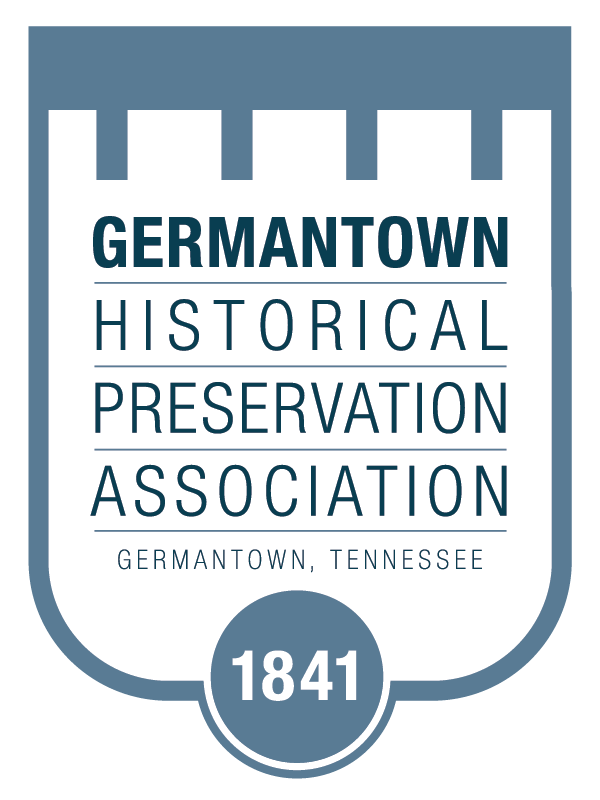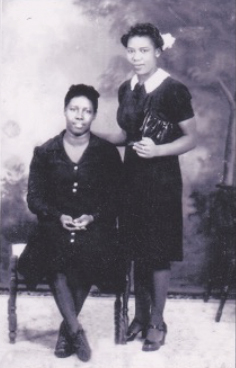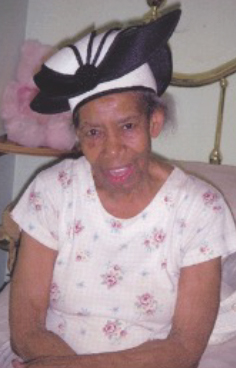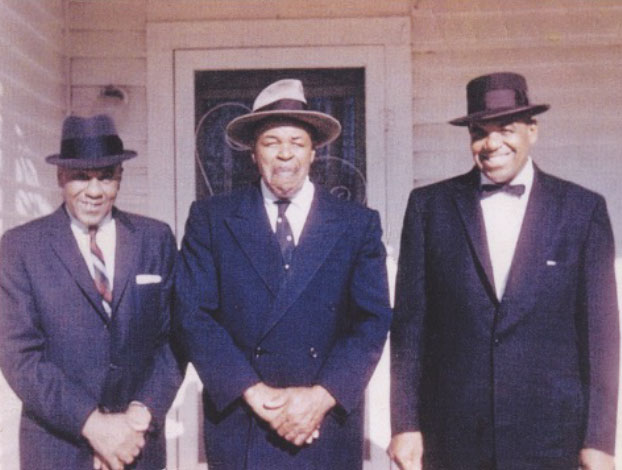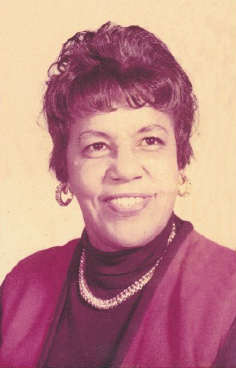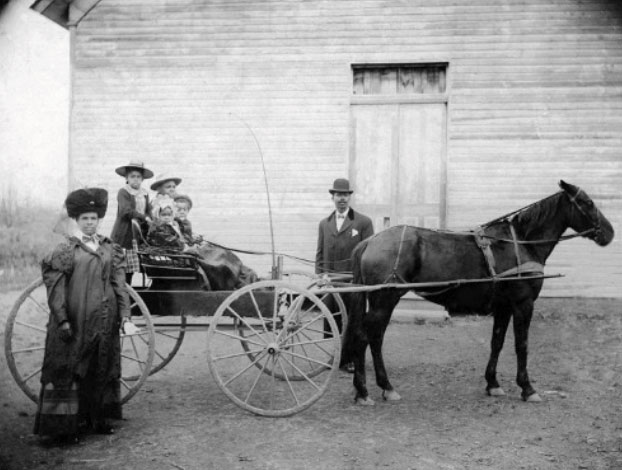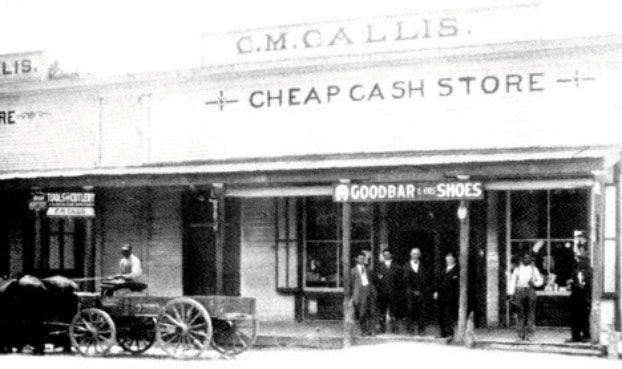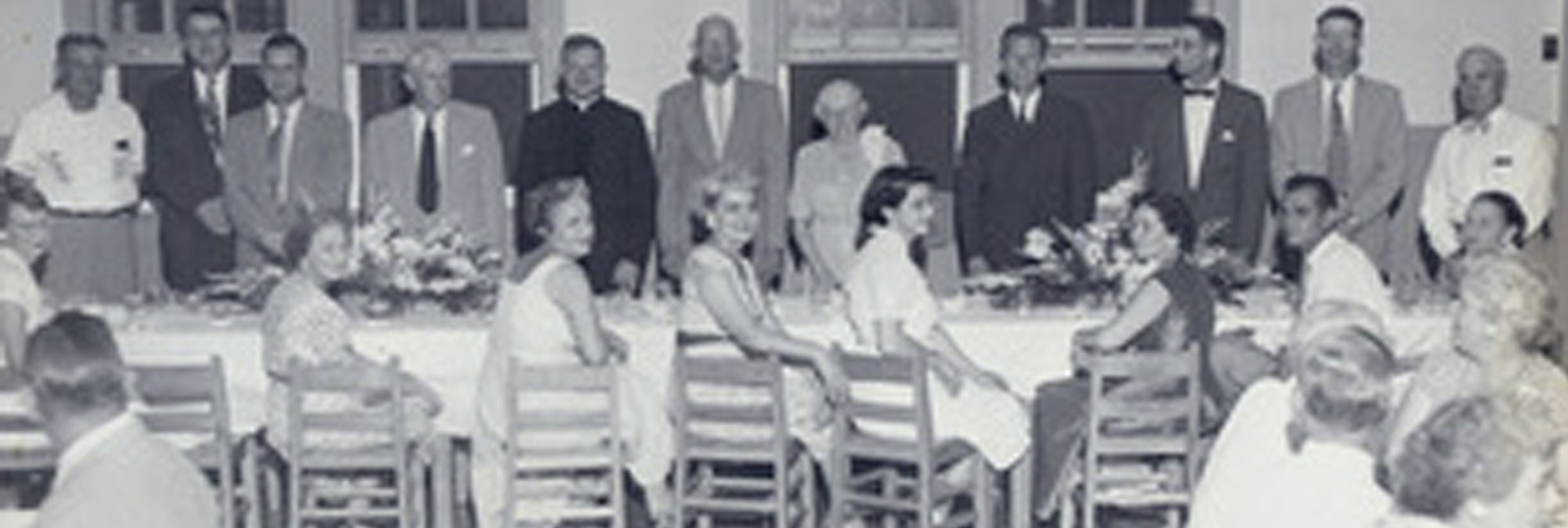
Leola Davis and The Lanes
Leola Davis was born in Germantown on March 4, 1922, near the Wolf River. Her parents were Fannie Hayman Walker and Booker T. Davis. She lived all her life in Germantown and had a close relationship with the Lane family who resided on Southern Avenue. Leola took care of Julia Lane until Julia’s death, the last of six (6) Lane children. Julia was like a sister to Leola. The last daughter-in-law, widow of Joe Lane (Ethel Lane) died in March of 2010. Ms. Davis cared for many Germantown residents and was not happy unless she was doing for others.
Julia’s brother, Johnny Lane courted Leola. Leola tells two amusing incidents of Johnny, one where he was taking her over to an Arkansas courthouse, and not being able to get out of Johnny’s truck because of the hard rain. On another evening he took her for a ride to Mississippi where he parked in front of the courthouse and went inside. When he returned to the car, he said that they were having a town business meeting, and they could not get married. Shocked, Leola replied, “Johnny, you have never asked me!” Leola loved Johnny, but her mother was in ill health, and she wanted to care for her. Neither Johnny nor Leola ever married.
Leola talked about Mr. Lee Reese having a plant nursery nearby that was quite large. Mr. Reese would travel once a year, and he would ask Leola to take customers through the nursery while he was away. Leola was still a child at the time, yet she did such a good job that she remembers receiving a $6.00 tip from two ladies on a Sunday afternoon.
Leola attended Nashoba Junior High in Germantown on Southern Avenue and Booker T. Washington High School in Memphis. She went to college for a short period of time to study cosmetology. Leola also made hats.
Jeff and Mary Lane had six (6) children: Joseph, Minnie, Johnnie, Irene, Robert, and Julia.
Dorothy Y. Ward, a staff writer for the Memphis Press-Scimitar sat down with the two sisters Julia and Irene Lane, on August 27, 1981, and they shared the following information on their family.
Irene and Julia, both schoolteachers, never moved from the house their father purchased in 1900 at 7606 Southern Avenue. The house faces the railroad where he worked as a section hand for Southern Railway. All the Lane children and their mother Mary are buried in the family plot in Bethel Cemetery behind New Bethel Baptist Church. (The photo below is part of a historical marker in front of the church. Mary and her children are pictured in a wagon in front of the former church structure. I found it interesting that the family members sit in the wagon in an order identical to the order in which their graves are laid out in the cemetery.)
The sisters remembered when Germantown was a rural area with about 350 residents – life was simpler for everyone. Sidewalks were planks, streets were unpaved, and Germantown had two stores, the Post Office and the Depot. Their father was a native of Moscow, TN, but their mother was born in Germantown around 1870. Mrs. Lane’s parents, Jim and Molly Rankin lived in a small house next door, belonging to the Callis family.
Both Mr. and Mrs. Rankin were born into slavery. Rankin was born in Virginia but was brought to Tennessee by his owners prior to the Civil War. Jeff Lane was a man who wanted the best for his family. While still working for the railroad, he bought a wagon and team of mules and began doing contract hauling. His daughters remembered that he hauled groceries for C.M. Callis Cheap Cash Store (on the site of the present-day Germantown United Methodist Church) from Front Street in Memphis to Germantown, as well as cotton from the Callis Gin back to Front Street. The wagon was replaced by a truck, and eventually Lane’s son, Johnnie, “took over for Papa”, hauling ice and groceries.
Julia and Irene Lane and their brother, Robert, were the youngest, and the three who were able to go to high school. Since there was no black high school in Germantown, the three youngest Lanes rode the Mike Brady, a commuter train which took its name from the engineer, into Memphis each day.
“We caught the train at 7 every morning and attended Manassas High School. We caught another train home at 7 in the afternoon. When we reached home, we had chores. Papa worked for the railroad and did the hauling. He rented land in the Wolf River bottoms which Mama farmed with help from us kids. Papa worked and he made us work,” said Irene Lane.
There is a Johnny Lane Road in Germantown. In addition to running the hauling business, Johnny Lane was a plumber and worked on laying Germantown’s first water line. He inherited the jobs of digging wells and graves from his grandfather Rankin. Johnny also drove the school bus for the Neshoba School.
“Johnny dug nearly all the graves around here – black and white,” said Irene Lane. “He was an old bachelor who lived here with Julia and me. He was so busy all the time, I guess he never had time to marry. Three of us married and three of us didn’t, but Mama and Papa never had a grandchild.”
The Lane home is a neat white clapboard house with a two-story annex at the rear built by their sister, Minnie, who returned after many years in Chicago to spend her remaining years in Germantown. There are spacious grounds around the house, full of color with late summer flowers.
Both sisters graduated from Lane College in Jackson, TN. Julia Lane taught first grade at Riverview until 1974 when she had a stroke. Irene Lane taught second grade at several schools – the last 10 years at Collierville until she retired in 1971. Julia Lane traveled across most of the United States, Canada, and Hawaii. She had made reservations for a tour of Europe when she had her stroke. She later went to Europe alone. Sister Irene did not care for travel, saying she would always rather stay at home and “fool with my flowers.”
Their oldest brother Joe, a World War 1 veteran, married and lived on family land near Neshoba School. He died two years ago (1979) at 86 years of age the sisters said. Their youngest brother, Robert, died in Chicago.
The land on which Neshoba School, now Neshoba Center, the New Bethel Church, and the cemetery were built was a gift from the late Florida Thomas, who wanted her former slaves to have a school, church, and cemetery said the Lanes.
The sisters said, “at one time at least half of Germantown’s population was black because it was a rural community whose business centered on farming. There were also a large number of black landowners in the Germantown area. Other black families with landholdings were the Hodges, Roberts, Watkins, Taylors, Tuggles, and Bradfords. There were middle-class blacks in the Memphis area who educated their children and did well economically by standards of the day, long before the civil rights struggles of the 1950s and 1960s”.
“For some reason, descendants of many of the original black families moved to Memphis, not too long before whites began pouring into Germanton, buy the new homes that developers built by the hundreds.”
The Lane family has many portraits that were taken by the old Hooks Photographic Studio, which was run by the family of Ben Hooks, Head of the National Association for the Advancement of Colored People (NAACP).
Leola Davis and Mother Fannie Hayman Walker
Leola Davis (August 12, 2008) at time of her interview
Lane Brothers: Joe, Robert and Johnnie
Julia Lane
Mary Lane with her children Irene, Joe, Robert, Johnnie, and Julia. The Rev. Will Benton is on the right with New Bethel Church in the background. The horse was named Otis.
C.M. Callis’ Cheap Cash Store
Lane Graves in New Bethel Cemetery, Germantown, TN
